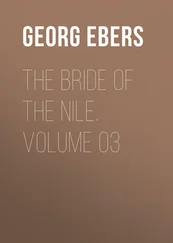Charles Warner - My Winter on the Nile
Здесь есть возможность читать онлайн «Charles Warner - My Winter on the Nile» — ознакомительный отрывок электронной книги совершенно бесплатно, а после прочтения отрывка купить полную версию. В некоторых случаях можно слушать аудио, скачать через торрент в формате fb2 и присутствует краткое содержание. Жанр: Путешествия и география, История, foreign_edu, foreign_antique, foreign_prose, на английском языке. Описание произведения, (предисловие) а так же отзывы посетителей доступны на портале библиотеки ЛибКат.
- Название:My Winter on the Nile
- Автор:
- Жанр:
- Год:неизвестен
- ISBN:нет данных
- Рейтинг книги:5 / 5. Голосов: 1
-
Избранное:Добавить в избранное
- Отзывы:
-
Ваша оценка:
- 100
- 1
- 2
- 3
- 4
- 5
My Winter on the Nile: краткое содержание, описание и аннотация
Предлагаем к чтению аннотацию, описание, краткое содержание или предисловие (зависит от того, что написал сам автор книги «My Winter on the Nile»). Если вы не нашли необходимую информацию о книге — напишите в комментариях, мы постараемся отыскать её.
My Winter on the Nile — читать онлайн ознакомительный отрывок
Ниже представлен текст книги, разбитый по страницам. Система сохранения места последней прочитанной страницы, позволяет с удобством читать онлайн бесплатно книгу «My Winter on the Nile», без необходимости каждый раз заново искать на чём Вы остановились. Поставьте закладку, и сможете в любой момент перейти на страницу, на которой закончили чтение.
Интервал:
Закладка:
We begin to thread our way through a maze of shipping, and hundreds of small boats and barges; the scene is gay and exciting beyond expression. The first sight of the colored, pictured, lounging, waiting Orient is enough to drive an impressionable person wild; so much that is novel and picturesque is crowded into a few minutes; so many colors and flying robes, such a display of bare legs and swarthy figures. We meet flat boats coming down the harbor loaded with laborers, dark, immobile groups in turbans and gowns, squatting on deck in the attitude which is the most characteristic of the East; no one stands or sits—everybody squats or reposes cross-legged. Soldiers are on the move; smart Turkish officers dart by in light boats with half a dozen rowers; the crew of an English man-of-war pull past; in all directions the swift boats fly, and with their freight of color, it is like the thrusting of quick shuttles, in the weaving of a brilliant carpet, before our eyes.
We step on shore at the Custom-House. I have heard travelers complain of the delay in getting through it. I feel that I want to go slowly, that I would like to be all day in getting through—that I am hurried along like a person who is dragged hastily through a gallery, past striking pictures of which he gets only glimpses. What a group this is on shore; importunate guides, porters, coolies. They seize hold of us, We want to stay and look at them. Did ever any civilized men dress so gaily, so little, or so much in the wrong place? If that fellow would untwist the folds of his gigantic turban he would have cloth enough to clothe himself perfectly. Look! that’s an East Indian, that’s a Greek, that’s a Turk that’s a Syrian-Jew? No, he’s Egyptian, the crook-nose is not uncommon to Egyptians, that tall round hat is Persian, that one is from Abys—there they go, we haven’t half seen them! We leave our passports at the entrance, and are whisked through into the baggage-room, where our guide pays a noble official three francs for the pleasure of his chance acquaintance; some nearly naked coolie-porters, who bear long cords, carry off our luggage, and before we know it we are in a carriage, and a rascally guide and interpreter—Heaven knows how he fastened himself upon us in the last five minutes—is on the box and apparently owns us? (It took us half a day and liberal backsheesh to get rid of the evil-eyed fellow) We have gone only a little distance when half a dozen of the naked coolies rush after us, running by the carriage and laying hold of it, demanding backsheesh. It appears that either the boatman has cheated them, or they think he will, or they havn’t had enough. Nobody trusts anybody else, and nobody is ever satisfied with what he gets, in Egypt. These blacks, in their dirty white gowns, swinging their porter’s ropes and howling like madmen, pursue us a long way and look as if they would tear us in pieces. But nothing comes of it. We drive to the Place Mehemet Ali, the European square,—having nothing Oriental about it, a square with an equestrian statue of Mehemet Ali, some trees and a fountain—surrounded by hotels, bankers’ offices and Frank shops.
There is not much in Alexandria to look at except the people, and the dirty bazaars. We never before had seen so much nakedness, filth and dirt, so much poverty, and such enjoyment of it, or at least indifference to it. We were forced to strike a new scale of estimating poverty and wretchedness. People are poor in proportion as their wants are not gratified. And here are thousands who have few of the wants that we have, and perhaps less poverty. It is difficult to estimate the poverty of those fortunate children to whom the generous sun gives a warm color for clothing, who have no occupation but to sit in the same, all day, in some noisy and picturesque thoroughfare, and stretch out the hand for the few paras sufficient to buy their food, who drink at the public fountain, wash in the tank of the mosque, sleep in street-corners, and feel sure of their salvation if they know the direction of Mecca. And the Mohammedan religion seems to be a sort of soul-compass, by which the most ignorant believer can always orient himself. The best-dressed Christian may feel certain of one thing, that he is the object of the cool contempt of the most naked, opthalmic, flea-attended, wretched Moslem he meets. The Oriental conceit is a peg above ours—it is not self-conscious.
In a fifteen minutes walk in the streets the stranger finds all the pictures that he remembers in his illustrated books of Eastern life. There is turbaned Ali Baba, seated on the hindquarters of his sorry donkey, swinging his big feet in a constant effort to urge the beast forward; there is the one-eyed calender who may have arrived last night from Bagdad; there is the water-carrier, with a cloth about his loins, staggering under a full goat-skin—the skin, legs, head, and all the members of the brute distended, so that the man seems to be carrying a drowned and water-soaked animal: there is the veiled sister of Zobeide riding a grey donkey astride, with her knees drawn up, (as all women ride in the East), entirely enveloped in a white garment which covers her head and puffs out about her like a balloon—all that can be seen of the woman are the toes of her pointed yellow slippers and two black eyes; there is the seller of sherbet, a waterish, feeble, insipid drink, clinking his glasses; and the veiled woman in black, with hungry eyes, is gliding about everywhere. The veil is in two parts, a band about the forehead, and a strip of black which hangs underneath the eyes and terminates in a point at the waist; the two parts are connected by an ornamented cylinder of brass, or silver if the wearer can afford it, two and a half inches long and an inch in diameter. This ugly cylinder between the restless eyes, gives the woman an imprisoned, frightened look. Across the street from the hotel, upon the stone coping of the public square, is squatting hour after hour in the sun, a row of these forlorn creatures in black, impassive and waiting. We are told that they are washerwomen waiting for a job. I never can remove the impression that these women are half stifled behind their veils and the shawls which they draw over the head; when they move their heads, it is like the piteous dumb movement of an uncomplaining animal.
But the impatient reader is waiting for Pompey’s Pillar. We drive outside the walls, though a thronged gateway, through streets and among people wretched and picturesque to the last degree. This is the road to the large Moslem cemetery, and to-day is Thursday, the day for visiting the graves. The way is lined with coffee-shops, where men are smoking and playing at draughts; with stands and booths for the sale of fried cakes and confections; and all along, under foot, so that it is difficult not to tread on them, are private markets for the sale of dates, nuts, raisins, wheat, and doora; the bare-legged owner sits on the ground and spreads his dust-covered untempting fare on a straw mat before him. It is more wretched and forlorn outside the gate than within. We are amid heaps of rubbish, small mountains of it, perhaps the ruins of old Alexandria, perhaps only the accumulated sweepings of the city for ages, piles of dust, and broken pottery. Every Egyptian town of any size is surrounded by these—the refuse of ages of weary civilization.
What a number of old men, of blind men, ragged men—though rags are no disgrace! What a lot of scrawny old women, lean old hags, some of them without their faces covered—even the veiled ones you can see are only bags of bones. There is a derweesh, a naked holy man, seated in the dirt by the wall, reading the Koran. He has no book, but he recites the sacred text in a loud voice, swaying his body backwards and forwards. Now and then we see a shrill-voiced, handsome boy also reading the Koran with all his might, and keeping a laughing eye upon the passing world. Here comes a novel turn-out. It is a long truck-wagon drawn by one bony-horse. Upon it are a dozen women, squatting about the edges, facing each other, veiled, in black, silent, jolting along like so many bags of meal. A black imp stands in front, driving. They carry baskets of food and flowers, and are going to the cemetery to spend the day.
Читать дальшеИнтервал:
Закладка:
Похожие книги на «My Winter on the Nile»
Представляем Вашему вниманию похожие книги на «My Winter on the Nile» списком для выбора. Мы отобрали схожую по названию и смыслу литературу в надежде предоставить читателям больше вариантов отыскать новые, интересные, ещё непрочитанные произведения.
Обсуждение, отзывы о книге «My Winter on the Nile» и просто собственные мнения читателей. Оставьте ваши комментарии, напишите, что Вы думаете о произведении, его смысле или главных героях. Укажите что конкретно понравилось, а что нет, и почему Вы так считаете.












